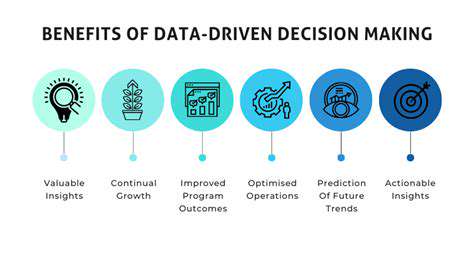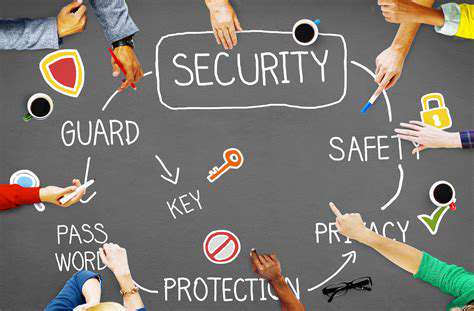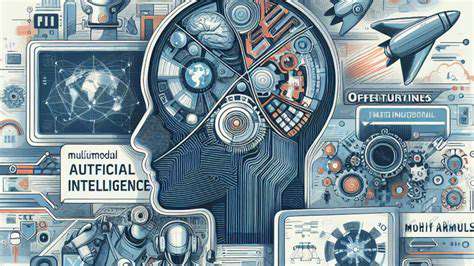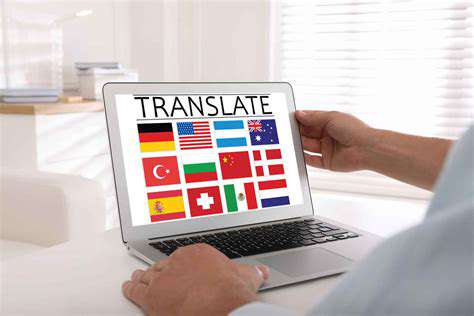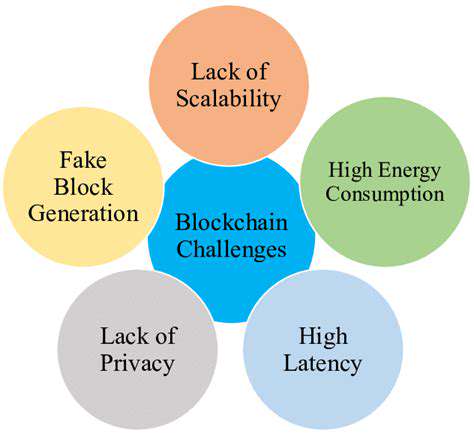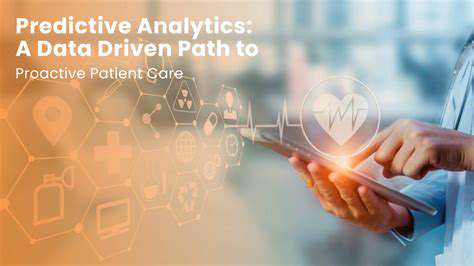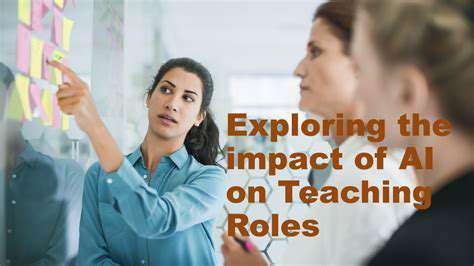The Internet of Things: A Fundamental Shift
The Internet of Things (IoT) is revolutionizing how we interact with the world around us, and this shift is particularly profound in the context of smart cities. IoT devices, ranging from sensors embedded in infrastructure to smart appliances in homes, collect and transmit vast amounts of data. This data, when analyzed effectively, provides valuable insights that can be leveraged to optimize urban operations, enhance citizen experiences, and drive sustainable development. The core principle lies in connecting physical objects to the internet, enabling them to communicate and share information, leading to a more responsive and efficient urban environment.
This integration of physical objects with digital systems creates a network effect, where the interconnectedness of devices amplifies their individual capabilities. Think of a streetlight that automatically adjusts its brightness based on ambient light conditions, or a traffic signal that dynamically adjusts timing based on real-time traffic flow. These seemingly simple applications highlight the transformative potential of IoT in urban spaces, enabling smarter and more efficient solutions for everyday challenges.
Data-Driven Decision Making
One of the most significant advantages of IoT in smart cities is the ability to collect and analyze massive amounts of data. This data, encompassing everything from traffic patterns and energy consumption to air quality and citizen feedback, provides a comprehensive picture of urban operations. Analyzing this data allows city planners and administrators to make informed decisions about resource allocation, infrastructure maintenance, and public service delivery.
Imagine a city where traffic congestion can be predicted and mitigated proactively, or where energy consumption can be optimized based on real-time conditions. The ability to track and analyze data in near real-time empowers cities to respond to issues effectively, improving the quality of life for citizens while reducing costs and maximizing efficiency.
Infrastructure Optimization
IoT facilitates significant improvements in infrastructure management. Sensors embedded in bridges, tunnels, and other critical infrastructure can monitor structural integrity, detect potential issues early on, and predict maintenance needs. This proactive approach reduces the risk of costly repairs and ensures the safety and functionality of essential urban systems. By connecting these systems, cities can better understand the performance and longevity of their infrastructure and implement appropriate maintenance strategies.
Enhanced Citizen Engagement
Beyond infrastructure optimization, IoT fosters enhanced citizen engagement in urban planning and management. Smart city initiatives can incorporate feedback mechanisms, allowing residents to provide input on various aspects of urban life. This two-way communication streamlines decision-making processes and builds trust and collaboration between the city and its citizens. For example, citizens can report issues, provide suggestions for improvements, and participate in virtual town halls, all contributing to a more responsive and participatory urban environment. This fosters a greater sense of ownership and involvement in the city's future.
Urban Planning Strategies: Shaping the Smart City Vision
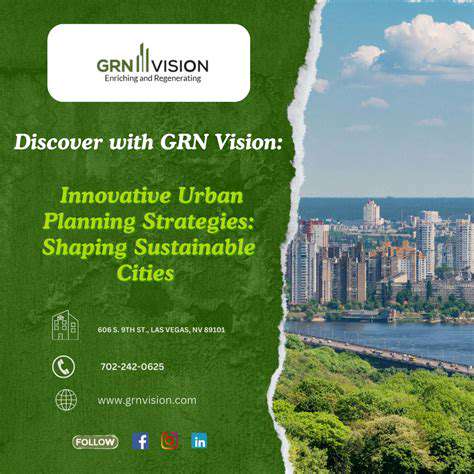
Sustainable Transportation Initiatives
Promoting sustainable transportation is crucial for reducing urban congestion and environmental impact. Investing in robust public transportation systems, such as expanding metro lines and bus networks, is paramount. This not only eases traffic flow but also encourages a shift away from private vehicles, thereby lowering carbon emissions. Encouraging cycling and pedestrian-friendly infrastructure, including dedicated bike lanes and well-lit walkways, significantly contributes to a healthier and more livable urban environment.
Furthermore, implementing policies that incentivize the use of electric vehicles and promoting charging infrastructure are essential steps in achieving a more sustainable transportation future. This multifaceted approach to urban mobility fosters a cleaner and more efficient urban ecosystem.
Mixed-Use Development Strategies
Integrating residential, commercial, and recreational spaces within the same development is a key aspect of urban planning. Such mixed-use development fosters walkability and reduces reliance on automobiles. This strategy can also significantly increase property values and create vibrant, dynamic urban centers.
By clustering diverse functions, mixed-use developments create a sense of community and accessibility. This approach to urban design promotes a more efficient use of land and resources, reducing the sprawl often associated with traditional suburban development.
Green Infrastructure and Urban Ecology
Integrating green spaces, parks, and urban gardens into the urban fabric is crucial for improving air quality, promoting biodiversity, and enhancing the aesthetic appeal of cities. These green spaces provide essential recreational opportunities and contribute to a more pleasant and healthy urban environment.
Implementing green infrastructure, such as rain gardens and permeable pavements, helps manage stormwater runoff and reduces the urban heat island effect. This not only enhances the urban ecosystem but also mitigates the negative impacts of climate change on cities.
Affordable Housing Initiatives
Addressing the housing affordability crisis is a critical component of successful urban planning. Creating incentives for affordable housing development, such as subsidies and tax breaks, is essential for ensuring equitable access to housing for all segments of the population.
Implementing zoning regulations that allow for a greater density of affordable housing units can help to alleviate housing shortages. This is a key strategy for fostering economic growth and social equity in urban areas.
Economic Development Strategies
Developing sustainable economic opportunities that support local businesses and create jobs is a crucial aspect of urban planning. This involves attracting businesses that align with the city's goals and promoting entrepreneurship and innovation within the urban environment.
Investing in infrastructure, such as high-speed internet access, can attract technology companies and foster innovation. Encouraging the growth of local businesses and industries also contributes to a more robust and resilient urban economy.
Community Engagement and Participation
Engaging residents in the planning process is essential for creating sustainable and livable cities. Community forums, workshops, and other platforms for dialogue can ensure that the needs and perspectives of all residents are taken into account in the development of urban policies and projects.
Active community involvement fosters a sense of ownership and pride in the city, which is critical for long-term success. This participatory approach ensures that urban planning initiatives are responsive to the specific requirements and aspirations of the community.
Data-Driven Planning and Evaluation
Utilizing data and analytics in urban planning allows for informed decision-making and effective resource allocation. Analyzing crime rates, traffic patterns, and population demographics provides valuable insights for creating targeted interventions and optimizing urban services.
Regular evaluation of urban planning initiatives is essential for adjusting strategies and ensuring that they are achieving their intended outcomes. Data-driven approaches ensure that resources are utilized efficiently and that the city is continuously adapting to meet the changing needs of its residents.
